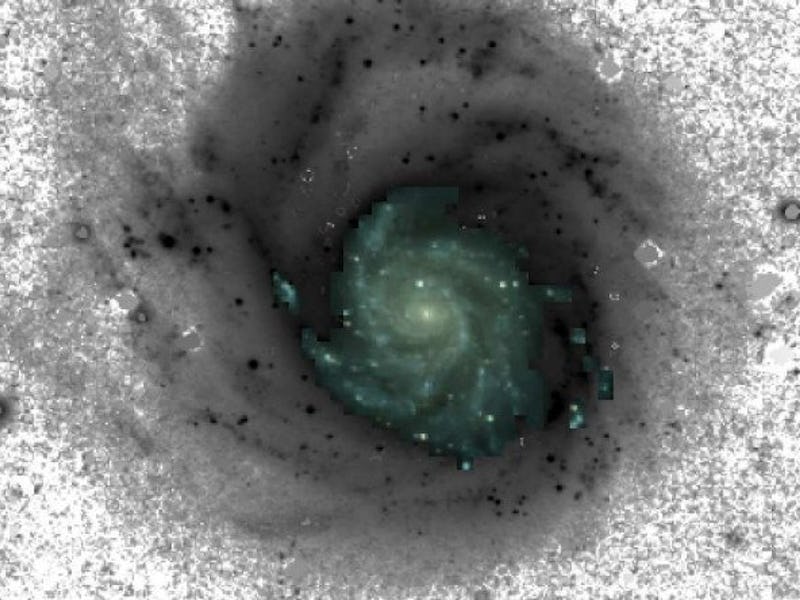We're Closer Than Ever to Finding Out If Dark Matter Exists in the Universe
The stuff we think makes up 85 percent of the universe could be hiding in massive stars.

A lot of astrophysics research is basically the search for things scientists are pretty sure exist, but can’t actually prove. While we might have already found gravitational waves — one of those elusive items — another case is still wide open: The hunt for dark matter.
Dark matter presumably makes up about 85 percent of matter in the known universe and is really weird stuff. We know it exists because we see its evidence — gravitational effects on things we can see, for example — in lots of places in the universe.
Now, scientists think we can use the sun to shed some light on this mystery: According to a new paper by researchers at the University of California, Irvine, dark matter could be hiding within the sun and resulting in a strange form of “dark” light. And if that’s the case, proving dark matter exists is just a case of finding and identifying this light.
We know dark matter exists because big, powerful bodies of energy like galaxies exhibit a lot of gravity, but we can’t seem to pinpoint all the mass that accounts for this force. Dark matter is not visible to us, but it must be there in order to explain why these bodies are able to hold themselves together and not spiral out into billions of pieces of gas and dust.
Dark matter seems to only interact with normal matter through gravity. So lead author Jonathan Feng thinks it resides inside massive objects like stars, where we can’t normally detect it unless we’re looking for “dark photons,” which Feng says are created when two dark matter particles within the sun come together and end up annihilating one another. This act realizes energy in the form of dark light, made of — you guessed it — dark photons.
Now, we still wouldn’t be able to detect dark photons directly. However, they would presumably decay into standard particles like electrons and positrons — which are detectable. Feng proposes using the Alpha Magnetic Spectrometer on the International Space Station to find them and provide observational support for dark photons, and dark matter by extension. “Even a few particles detected would be enough to claim discovery,” he told New Scientist.
There’s no overstating how important the discovery of dark matter would be to the entire field of science. It would practically unlock the majority of the universe to our eyes. As more funding goes into dark matter research and we build better instruments to find it, it’s only a matter of time till the dark is finally illuminated.